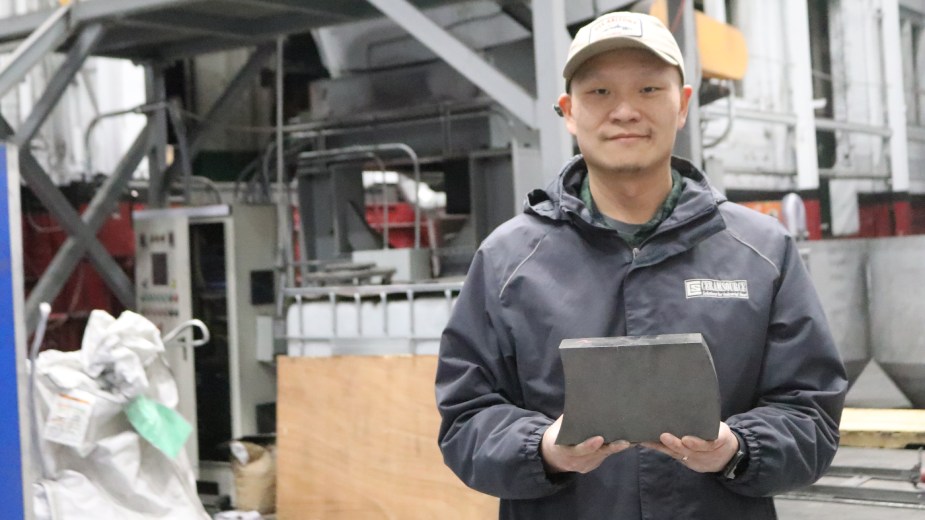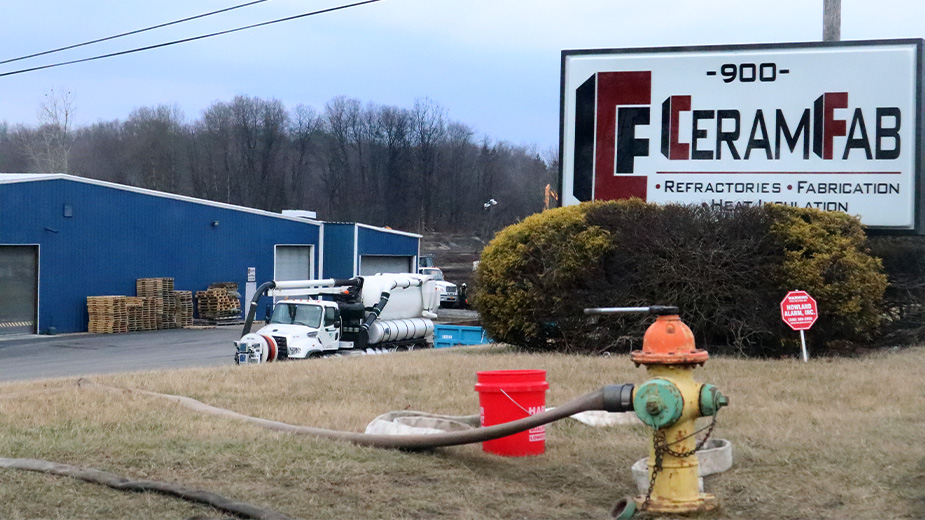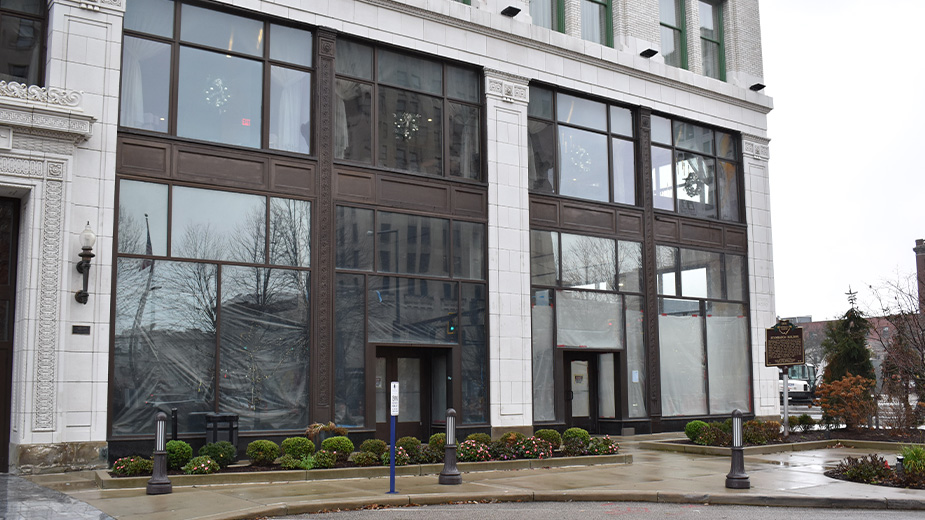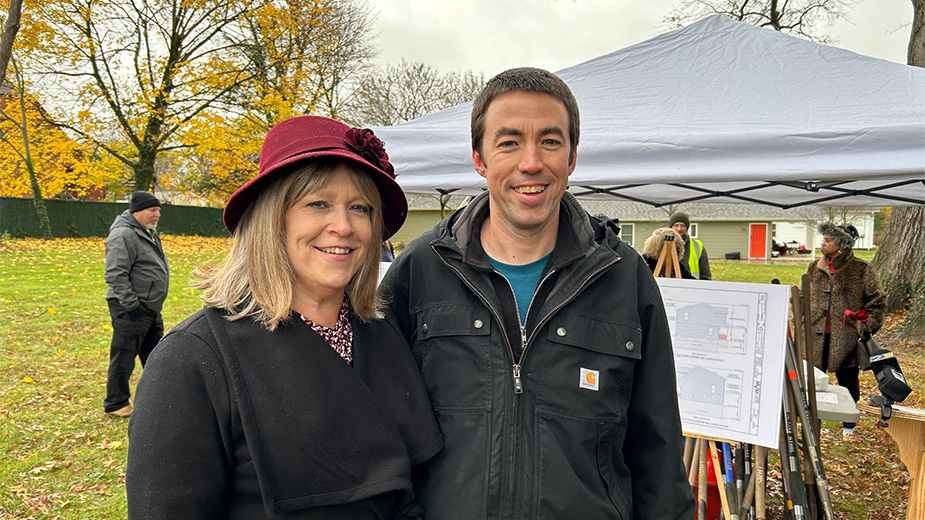East Palestine Plants Suspend Operations as Workers Get Sick
EAST PALESTINE, Ohio – With employees continuing to suffer ill effects since the train derailment now more than three weeks ago, CeramFab and two of its affiliated plants in East Palestine have been forced to cease manufacturing – again.
The situation is most serious for CeramFab on East Taggart Street, according to plant manager Howard Yang. Employees at that 80,000-square-foot plant next to the derailment site, have suffered the most health issues with some reporting a medical diagnosis of chemical bronchitis. The company’s other plant, which houses CeramSource and WYG Refractories, is less than a mile from the train derailment site. It has seen employees suffer rashes and respiratory issues.
Yang said some employees repeatedly suffer the same symptoms each time they return to work for a couple of days. They had returned to work once the evacuation order was lifted, believing when they were told it was safe, and again after another air test at the plant showed no signs of problems.
An attorney hired by Edwin and Kathy Wang, who own CeramFab, WYG Refractories and CeramSource, sent another air inspector to the manufacturing plants on Monday.
With all the employees becoming ill, Kathy Wang said she has to question, “How can they say the air is safe?”
The Wangs note they both are at the factories and care about their employees and their own health. But they’ve found it difficult to believe experts who say the air quality is safe when employees continue to experience symptoms.

“We’ve been trying to get honest answers from them,” said Yang, the plant manager.
After a second failed attempt to reopen, Yang said they had a meeting on Thursday and had employees fill out paperwork to apply for lost wages to be reimbursed by Norfolk Southern. So far, the employees seemed to have received no push-back from the railroad.
Yang, who has a persistent cough himself, said he went to the emergency room on Thursday. Medical professionals were unsure what tests to administer that could determine if his illness is related to the chemicals or is viral, he said.
Yang believes it may end up being a long-term fight with Norfolk Southern. But for now, he said, they are just taking things day-by-day.
“How safe is our building going forward,” Yang asks? “Is staying in East Palestine even a smart thing to do, if we have to shut down every week or every couple of weeks? We all depend on this business to live and our workers are not going to just stay around.”
Getting those workers was difficult enough to begin with. Since the COVID-19 pandemic, manufacturers nationwide have posted more jobs openings than before, and these three businesses are no different. Yang said they found some very good workers and were still looking for more before the derailment. Between the three locations, the plants employed 40 in January.
Ceasing production makes it impossible to fill orders. “In the refractory business, they need it yesterday,” Yang said of the plants’ customers. “They cannot shut down their plants while they wait for supplies. It costs them millions of dollars a day.”
Kathy Wang said she has spoken to companies who question if the products being produced in East Palestine are safe.
CeramFab uses ceramic fiber slurries to create specialized shapes for the heating industries, boards and products for steel mills. The derailed cars narrowly missed doing heavy damage to that plant, but did leave heat damage and collapsed an area of the building. While the company had been training employees for a second shift, it had not started when the train derailed.
CeramSource, Inc., a wholesale business supplying refractory insulation materials to the steel industry, was previously based in New Jersey. CeramFab Inc. was established in 2017, while WYG Refractories LLC began in 2020.
When Edwin Wang purchased the buildings – the one near the derailment and the other near the James Street crossing – and opened the three businesses there, he had no idea what was ahead.
Kathy Wang said she and her husband could have retired. But he wanted to do something meaningful in East Palestine and leave a legacy for this community. She said people often thanked them for fixing up the buildings and relocating here. The buildings needed a lot of work.
She said they bought the CeramFab building for about $500,000 and have invested about three times as much in the facilities. Norfolk Southern’s property drained toward CeramFab before the derailment. Now heavy machinery is at the site as part of the clean-up.
WYG makes MAG Carbon Bricks especially for steel foundries. Many of its customers are in this area and elsewhere in Ohio, in the Pittsburgh area, Indiana and as far as Texas.
“A lot of the customers are looking for sources that are American made and we want to be a provider for that. It’s not a lack of business or lack of orders. It’s a lack of stability at this time,” Wang said.
The health concerns of her employees and East Palestine residents seem to vary from person-to-person. Some seem to be unaffected, while others report repeated problems including nausea, rashes, respiratory problems including a chemical bronchitis, sore throats and runny eyes.
The situation has prompted the Centers for Disease Control to send a team leader, Jill Shugart, to East Palestine. During Monday’s FEMA press conference, Shugart said they are creating a survey for first responders who were at the derailment scene during the first few hours, as well as those who worked around it throughout the clean-up.
She is obtaining a list of the first responders and will develop questions about what their exposures may have been.
Residents can go to the Health Assessment Center at the First Church of Christ, where their vitals signs can be tested. They can take a survey and see a medical doctor, who will provide individual assessments and if needed, connect them with a doctor to provide long-term help. The clinic is no longer requiring an appointment.
In response to questions about why the EPA is not testing for dioxins, EPA Regional Administrator Debra Shore said Monday there is no benchmark to show what the dioxin level was before the derailment, so it would be impossible to know if those levels are now higher.
Federal EPA air tests in 15 locations throughout East Palestine reportedly have not found particulate levels that are too high and have made the air unsafe.
“I know our residents are getting frustrated. But we’re working as fast as we can to get them the answers,” Mayor Trent Conaway said. “I think they’re working as hard as they can. I do question people getting rashes and stuff like that, what’s causing it. They are saying everything is safe and we take them at their word, but we need to get to the bottom of what’s happening.
Another town hall meeting is scheduled for Thursday when the community can question representatives from the various agencies involved in the community’s recovery from the derailment.
Pictured at top: The CeramFab building on East Taggart Street is next to the train derailment site. No employees were at the plant the night of the derailment.
Copyright 2024 The Business Journal, Youngstown, Ohio.



